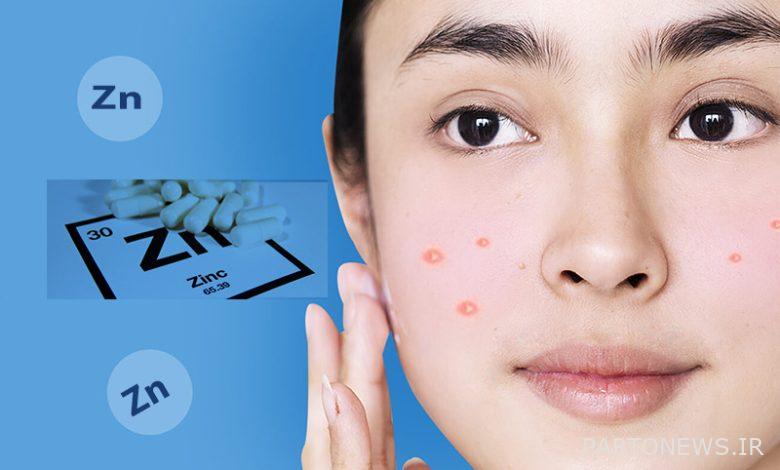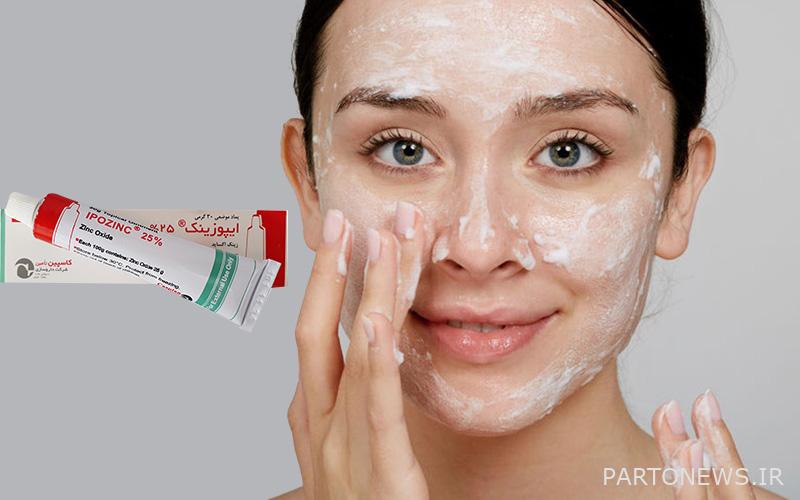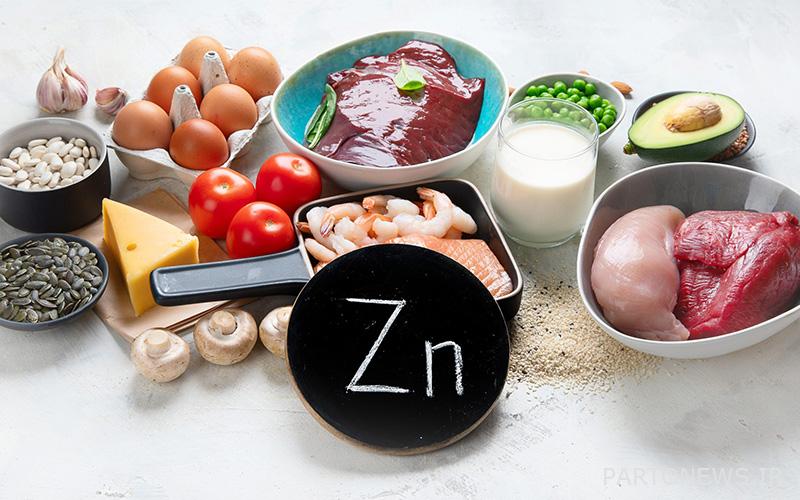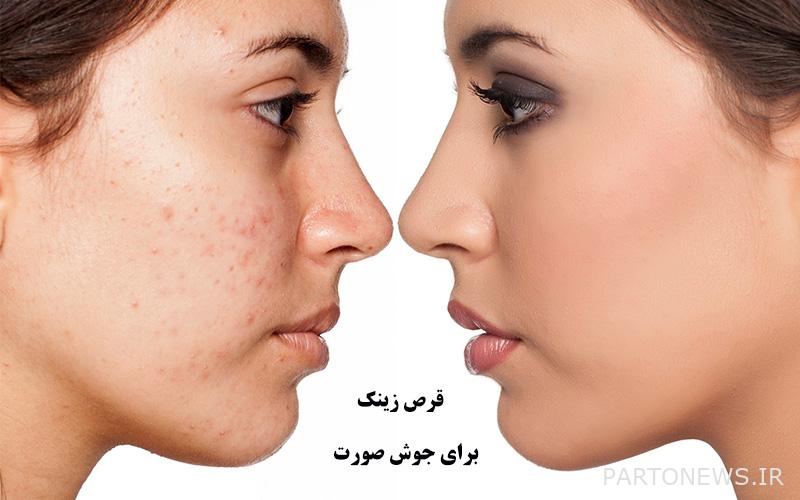Miracle Zinc Pills for Acne

Acne on the face occurs more than ever during puberty and has a negative effect on the appearance of adolescents, but acne or acne is not limited to adolescence and can occur at any age. You may have heard that zinc pills can be helpful for acne. Zinc, a mineral zinc, has unique health benefits, but to what extent can it be used to treat or prevent acne?
If you want to prepare zinc in the form of a dietary supplement, to see the price of zinc pills in different types and brands, click on the link provided and enter the positive online green pharmacy.
Are Zinc Pills Useful for Acne?
Many important functions in the human body depend on the consumption of sufficient zinc. What is Zinc? Zinc is an essential mineral for the body that is involved in children’s weight and height growth, wound healing, enzymatic activities, strengthening the immune system, cell division and DNA and protein synthesis, and can also treat acne.
Acne is one of the most common skin disorders caused by excessive sebum production and secretion. Excessive production of fat and sebum on the surface of the skin leads to inflammation and blockage of skin pores, causing lesions such as pimples. There are several types of acne, the most important of which are whiteheads, blackheads, papules, pustules, cysts and nodules.
The results of a study in 2014 showed that the anti-inflammatory properties of zinc can be useful in the treatment of skin diseases that are associated with inflammation. Pustules, nodules and cysts are types of acne that are inflammatory. Researchers also believe that the mineral “zinc” may be effective in eliminating acne by suppressing sebum and fighting acne-causing bacteria; This means that non-inflammatory acne can also be treated with zinc. Zinc can also be used to treat other inflammatory skin conditions such as melasma, rosacea acne, seborrheic dermatitis and eczema.
Zinc pills for acne and its treatment can be effective in two ways: one with anti-inflammatory properties and the other by eliminating the viruses and bacteria that cause acne.
Should we use zinc pills or zinc ointment to treat acne?
Does your skin type, the severity of your acne, and your health condition determine whether you should take a zinc supplement or topical zinc cream? Research shows conflicting results about the form of zinc that should be used for welding. A 2012 study found that zinc orally can affect both acne and inflammatory acne. Earlier, another study found that oral zinc could only affect mild acne.
Taking zinc pills may be associated with side effects such as nausea and vomiting; While topical use of zinc generally does not have such side effects, some studies have suggested that topical use of zinc may not be as effective as tablets. However, topical application of zinc may have anti-inflammatory properties to help clear acne-causing bacteria and control sebum production. Finally, your doctor can determine if topical zinc is better for your pimples or zinc tablets. Try to increase the zinc food sources in your diet so that you do not face a deficiency of this mineral.
Topical medications containing zinc to treat acne
If you want to use topical zinc instead of zinc tablets for pimples, usually in the form of a gel or cream, you should get it from a pharmacy and apply it directly on the desired area. Zinc sulfate, zinc acetate and zinc octate are among these topical drugs.
Studies have shown that people with acne have low levels of zinc in their body. Therefore, by increasing the consumption of zinc in the diet, an effective step can be taken to improve acne.

Zinc oral supplement
Sometimes acne covers large areas of skin or areas of the body that are a little difficult to reach. In this case, topical treatment with zinc is a little difficult and zinc tablets can be used orally. Zinc sulfate, zinc gluconac or zinc-containing salts can be used for this purpose.
Increase dietary zinc intake
You do not need to use zinc pills for acne. If you eat more zinc-rich foods, you can probably be more successful in reducing acne. The richest foods containing zinc include:

- Shell
- Red Meat
- Chicken
- dairy products
- Nuts
- Beans
- Whole grains
- Enriched breakfast cereals
- Seafood
Zinc absorption from animal sources is better than plant sources because some plants contain phytate, which reduces the absorption of zinc in the body.
How to use ointment and zinc tablets for acne
Topical application of zinc can affect nodules and cysts and improve acne. Ointments containing zinc, like other skin products, can cause allergies and side effects, so it is better to try the cream on a limited part of the skin, such as the arm, and then use it on your skin if it does not cause any problems. To start, apply the ointment only once a day on the desired position, ie face.
It is better to take zinc pills for acne once a day. Unless your doctor tells you otherwise. The recommended dose of zinc in women over 18 years of age is 8 mg per day and in men over 18 years of age is 11 mg per day.
How to use zinc oxide ointment for acne
Zinc oxide is one of the most popular and well-known creams containing zinc that can be effective in treating acne. Wash and dry your face with a suitable cleanser before using this ointment. Then rub a good amount of the product on the face and the desired position and massage a little. Dosage oxide often forms a white layer on the skin that will decrease in whiteness over time. Repeat this 1-2 times a day. Zinc oxide can also be effective in repelling harmful sun rays and act as a sunscreen. You should continue to use zinc oxide for at least 12 weeks to show the effects of consumption on the boil.

Side effects of using zinc for welding
Zinc supplements such as Zinc Plus tablets may cause symptoms such as: If you take more than the recommended dose.
- stomach ache
- Diarrhea
- Headache
- Loss of appetite
- nausea
- Vomit
- stomach discomfort
Be together. High levels of zinc can also negatively affect the body’s good cholesterol levels. Topical application of zinc is also possible with:
- Red
- Skin irritation
- Increased pimples and hives
Be accompanied, in which case discontinuation is recommended.
Does Zinc Plus Pills Cause Acne?
No; Zinc Plus pills do not cause pimples and acne. As mentioned, zinc deficiency in the body can be associated with an increase in the amount of pimples, but if you use enough zinc supplements, not only will acne not increase, but its severity will decrease. Be careful not to use more than the recommended amount of zinc capsules.
Which vitamin deficiency causes acne?
The following vitamins and minerals can be helpful in preventing acne:
- Zink
- Vitamin A
- Vitamin D
- Vitamin E
These nutrients have anti-inflammatory properties and their deficiency in the body is also associated with increased acne.
Is Biotin Pills Good For Acne?
The results of some studies have shown that biotin, one of the B vitamins, may help improve comedonal acne, which causes blackheads and whiteheads. Control of skin scaling and irritation caused by consumption Retinoids Acne is another benefit of using biotin for the skin.
last word
Zinc pills for acne can be useful in two ways; First, this supplement has anti-inflammatory properties and is considered a type of inflammatory acne, and second, zinc pills can fight and kill the bacteria that cause acne. You can also use zinc topically for pimples on the face and body.
Please rate this article
[مجموع: ۲ میانگین: ۵]


